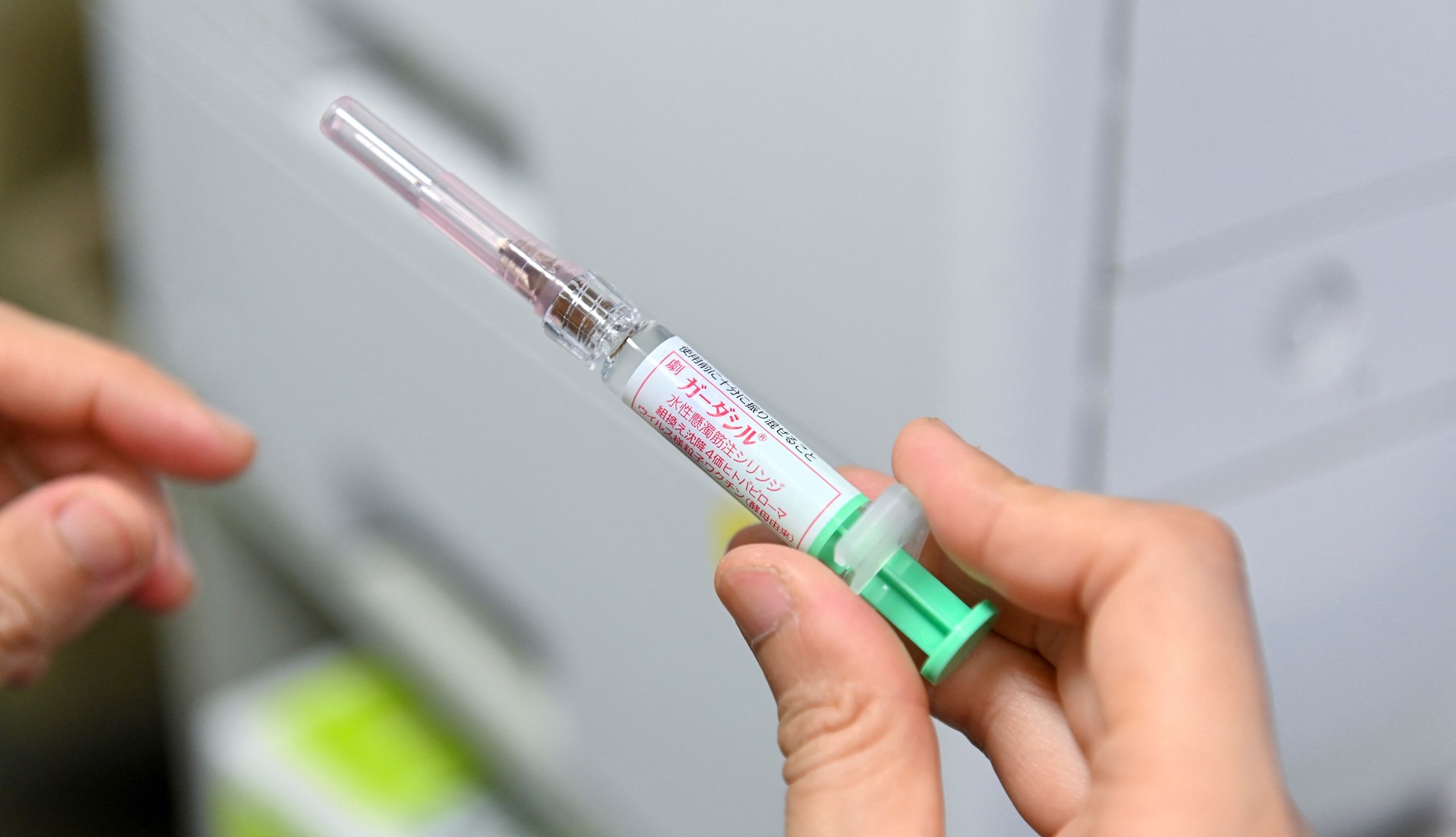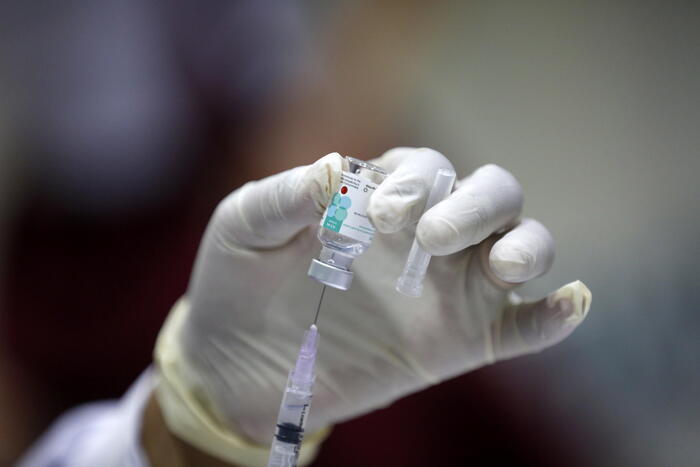Promising results reported in melanoma vaccine trials 2:31
(CNN Spanish) --
This is a dream of science: to develop a vaccine that prevents or cures cancer.
Currently, there are therapeutic vaccines, but how close are we to one that prevents or cures the disease?
Dr. Elmer Huerta, who is an oncologist and was the first Latino president of the North American Cancer Society, talks about current research.
The office is open, welcome!
You can listen to this episode on Spotify, our YouTube channel or your favorite podcast platform, or read the transcript below.
Hello, welcome to this new episode of In Consultation with Dr. Elmer Huerta, your favorite health podcast on CNN en Español.
Dr. Huerta greets you, I hope you are well.
Today we are going to talk about the advances in the development of cancer vaccines.
advertising
Although extraordinary advances have been made in the diagnosis and treatment of cancer in recent years, and many people lead virtually normal lives after being diagnosed, unfortunately for many others, an encounter with cancer poses a serious threat to their health.
The dream of medical science has always been to develop a vaccine against this disease.
Although it is true that there are already vaccines that can prevent cancer indirectly, for example the vaccines against the hepatitis B virus (HBV) and the human papillomavirus (HPV), which protect against diseases that can cause cancer of the liver and cervix respectively, science is working feverishly to develop vaccines that can prevent the development of cancer in a direct way.
Immunotherapy is not the same as a cancer vaccine
First of all, it is important to clarify that, at present, there are medicines called “therapeutic vaccines”, which have been used for a long time to treat cancer.
Unlike true vaccines, which are given to prevent disease, this group of medicines—belonging to a class of drugs called immunotherapy—are given to patients who already have cancer to treat the disease.
That is why, from a strictly scientific point of view, by treating disease already produced or preventing disease from recurring, therapeutic vaccines should not be called vaccines.
It is most likely that they have been given that name because of their mode of action, which is to stimulate the patient's defense system to destroy the tumor.
That said, today we'll briefly review both methods: vaccines that are used as immunotherapy treatment, and true vaccines, those that try to prevent disease in people who haven't developed it.
the immune system
Before continuing, let's briefly recall how the defense system or immune system works.
In a simplified way, the immune or defense system bases its operation on a common sense concept.
Which?
That of being able to recognize the enemy and know how to respond adequately to destroy it.
In this sense, invading microorganisms, such as viruses, bacteria or fungi, have protein molecules called antigens in their external structure, which act as the invader's signature.
Said protein antigens are recognized by specialized cells called T lymphocytes, which immediately instruct another type of lymphocytes (called B) to produce an enormous amount of destructive molecules called antibodies that have a fundamental characteristic: they are specific in destroying the invading antigen.
Having understood how the human immune system works, let's now remember how vaccines work.
Traditional vaccines (for example, against measles, polio or pneumonia) are drugs that contain the antigens of the virus or bacteria against which they are intended to immunize, while modern messenger RNA vaccines insert genetic codes that instruct the cells of the immune system. defense to produce the antigens against which it is desired to immunize.
Thus, when the true virus or bacteria enters the body, the T lymphocytes of the vaccinated person recognize their antigens and order the production of protective neutralizing antibodies against them.
Now yes, let's see how -using those principles- therapeutic vaccines and real vaccines against cancer are being developed.
Cancer cells also have antigens
The fundamental concept to understand how therapeutic vaccines and cancer vaccines work is that -like viruses or bacteria- cancer cells also have antigens on their surface, so these can be recognized by T lymphocytes and can stimulate the production of antibodies by B lymphocytes.
So, just as when a child is vaccinated against measles and the defense system mounts a huge response to prevent the development of the disease, a therapeutic vaccine or a true vaccine against cancer would have the same effect: that T lymphocytes and antibodies produced against cancer cell antigens prevent tumor growth.
In this case, the concept is that cancer has already occurred in a patient, but it is desired to use a vaccine so that the patient's immune system will prevent the disease from progressing or recurring in the future.
That is, the vaccine is used as part of the treatment or to prevent relapse in the future;
that is why it is called therapeutic.
Two interesting investigations illustrate this strategy.
The therapeutic vaccine against breast cancer
A recent study, published in
JAMA Oncology
on November 3, 2022, shows good results with a DNA vaccine prepared against the HER-2 antigen, which is present on the surface of multiple cells but in up to 30% of the cells. breast cancers.
The presence of this HER-2 antigen in breast cancer makes the disease have a more aggressive course and a greater tendency to relapse in the future.
What the researchers from the University of Washington, in Seattle, did is that they prepared a vaccine that inserts a DNA genetic code so that the body of the vaccinated woman produces part of the HER-2 protein, which serves as an antigen.
Thus, by producing large amounts of that HER-2 protein, the vaccinated woman's body creates large amounts of antibodies against the cancer cells that contain the HER-2 antigen, destroying them in the process.
In a phase 1 study, 66 women were vaccinated with three different doses of the vaccine and after a 10-year follow-up, 80% of them were still alive, compared to only 50% in historical follow-ups.
The strongest immune response was in patients who received a medium dose, and the side effects were very mild, much like a flu shot.
Now the authors have started phase 2 studies that, if successful, will lead to phase 3 studies and their approval.
Therapeutic vaccine against skin cancer
Another study, not yet published in a scientific journal, was reported by the pharmaceutical companies Moderna and Merck, who used a messenger RNA vaccine in combination with an immunotherapy drug called Keytruda.
What the scientists did was identify 30 genetic mutations in the cancer cells of a type of skin cancer called malignant melanoma, and then they prepared 30 messenger RNA genetic codes for each of them.
When injecting the vaccine, the body produced the proteins responsible for each of the 30 genetic mutations, which caused the patients' defense system to produce antibodies against them.
In the study, 157 patients were randomly divided into two groups.
One received the vaccine together with the Keytruda drug that directly targets the tumor, while the second received only the Keytruda drug.
The results indicated that, compared to the group that only received the medicine Keytruda, tumor relapse was 44% lower in the group that received the vaccine and the medicine.
The real cancer vaccines
Now let's see the real vaccines against cancer, which, as we said, are those that are given to people who do not have cancer to prevent the development of the disease.
A recent review article, published April 7, 2022 in the journal Science, describes efforts to develop a cancer vaccine.
A group of people who need this type of vaccine is one who has a high genetic load to develop some type of cancer, that is, they have a strong hereditary load.
Some examples include people with a family history of a type of colon or large intestine cancer called Lynch syndrome, who have a 70% chance of developing that type of cancer at some point in their lives, usually at a young age.
Other examples of high-risk groups include women with heritable BRCA gene changes, who have a high tendency to develop breast or ovarian cancer, and people with KRAS gene mutations, who have a very high predisposition to develop pancreatic and colon cancer. .
These studies in susceptible people are still in their very early stages and are very difficult to evaluate because of the many years it takes to evaluate the results.
The study in people with precancerous lesions
A second group in which cancer vaccines are being studied is that of people with precancerous lesions that predispose them to cancer in the future.
For example, in the first study of a preventative vaccine in healthy people, researchers at the University of Pittsburgh used the protein mucin-1, which is highly abundant in colon cancer cells, as an antigen.
The vaccine, tested in 39 people with precancerous colon polyps, and therefore at high risk of developing cancer in the future, showed that some volunteers produced high levels of antibodies directed against mucin-1, and that the vaccine was able to prevent the formation of new colon polyps, demonstrating that preventive vaccines against cancer can be made.
Finally, thanks to modern genomic analysis, it has been seen that tumors present a certain type of antigen, called neoantigen, which is only found in cancer cells, and knowledge of which could lead to the development of specific vaccines for the prevention of various types. Of cancer.
The US government's cancer initiative
In that sense, the White House Moonshot initiative has called for using messenger RNA vaccines to train the immune system to be able to recognize 50 genetic mutations common to various types of cancer, so that vaccines can be prepared that eliminate the cancer is just beginning to appear.
In conclusion, cancer vaccines, which include therapeutic vaccines and true vaccines that can be administered to people without cancer, are still in experimental stages, but their impact in the future will undoubtedly be great.
While these advances arrive and before we have vaccines that prevent cancer, it is our duty to remind you that, if due to the pandemic you postponed your early detection exams, catch up immediately.
Remember that a cancer detected early is much more likely to be cured than one discovered at an advanced stage.
Do you have questions for Dr. Huerta?
Send me your questions on Twitter, we will try to answer them in our next episodes.
You can find me at @DrHuerta.
If you find this podcast useful, be sure to subscribe to get the latest episode on your account.
Help others find it by rating and reviewing it on their favorite podcast app.
And for the most up-to-date information, you can always go to CNNEspanol.com.
Thanks for your attention.
CancerCancer VaccineVaccines







